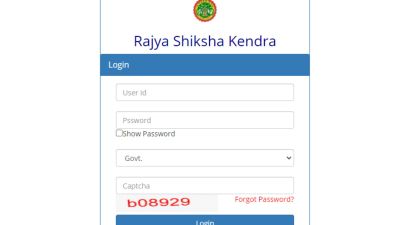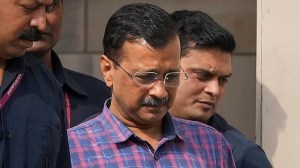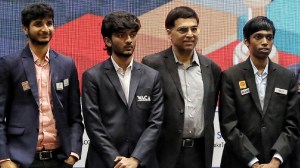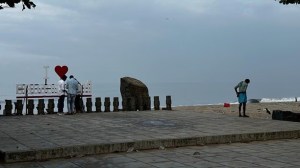- India
- International
His hands tied, PM Manmohan Singh surrendered to Sonia Gandhi: ex-media adviser Sanjaya Baru’s book
‘Accidental prime minister': PMO says book ‘smacks of fiction and coloured views’.
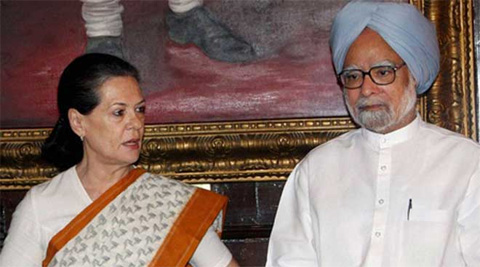 Congress president Sonia Gandhi with PM Manmohan Singh. (File photo: PTI)
Congress president Sonia Gandhi with PM Manmohan Singh. (File photo: PTI)
A book by Prime Minister Manmohan Singh’s former media adviser Sanjaya Baru, The Accidental Prime Minister, hit the stands Friday and created a storm with damning claims on the equation between the PM and Congress president Sonia Gandhi, and the crippling effect it had on governance.
The claims drew a strong reaction from the PMO, with PMO sources saying that a hurt Singh had told some of his aides he felt he had been “stabbed in the back”.
Baru is a columnist with The Indian Express and a former editor of Financial Express.
Sources said Baru had sent a copy of the book to the PM about a week ago with a note in which he had said that even though he felt “traumatised by the events of 2009”, he had tried to be objective.
The former aide has recalled in his book that Singh had asked him to return from a teaching job in Singapore to assist him in his second term in 2009 but failed to deliver on the promise at the eleventh hour after he had returned to Delhi.

This, he has indicated, was because of the party interfering in the decisions of the government and is the central premise of the book – that Singh could not be his own PM except on rare occasions like the nuclear deal.
The book, which comes in the middle of general elections, appeared to reinforce the opposition BJP’s charge that Singh’s UPA government was crippled by the “two centres of power” and suggested that the PM “turned a blind eye” to the alleged corruption charges against his ministers in the government.
“I have to come to terms with this. There cannot be two centres of power. That creates confusion. I have to accept that the party president is the centre of power,” Baru has quoted Singh as having told him, suggesting that the PM had virtually surrendered to Sonia.
That he surrendered his authority to the political bosses – Sonia and her son Rahul – has been highlighted in the book where Singh snubbed attempts to give him credit for expanding NREGS across the country while the party wanted to credit Rahul for it.
“The PM sat stiff in stony silence. I broke the silence adding, ‘The party wants to give the entire credit for this decision to Rahul. But both you and (Rural Development Minister) Raghuvansh Prasad deserve as much credit’,” Baru has written about his interaction with the PM after learning that the Congress had taken objection to the media crediting Singh for the move.
“I do not want any credit for myself.I do not want you to protect my image,” Baru has quoted Singh as having said while snapping at him for trying to credit him in the media.
That the PM was not in charge also comes across in an incident Baru narrates about how Singh had “implemented Karunanidhi’s request” to allot the telecom portfolio to A Raja in May 2007 two days after the DMK chief informed him that “A Raja would be his key representative in Delhi” during a public function in Chennai.
In another instance, the book points out that Andhra leader Subbirami Reddy was “accommodated” in the council of ministers at the last minute after a “white paint had been applied over the name of Harish Rawat” in the Prime Minister’s letter that had been “typed and signed” for the President for the January 2006 reshuffle as Sonia’s political secretary Ahmed Patel got the request for Reddy’s inclusion at the last minute before it was “dispatched” to the President.
Baru claims Patel would visit South Block mainly to lobby with Pulok Chatterjee, principal secretary to the PM, for the inclusion of names of Congress party members on the boards of public enterprises and nationalised banks.
The book also highlights how ministers did not demonstrate their “loyalty” to the PM because they owed their jobs to the Congress president and not Singh.
“That Jairam Ramesh’s loyalty was only with Sonia became clear within weeks of his becoming a minister when he chose to embarrass the PM by leaking a letter that Sonia had written to Dr Singh cautioning him against pursuing an initiative he valued a lot – the free trade agreement (FTA) with member countries of the ASEAN,” the book says.
Congress leaders “did no see loyalty to the PM as a political necessity”, it adds. In this backdrop, Baru claims he felt the PM was “not too comfortable” with the parallel policy structure of the NAC under Sonia.
While the book does not provide much insight into the alleged tussle between the telecom ministry under Raja and the PMO over 2G spectrum pricing and allocation, it says industrialist Ratan Tata had “alerted” Singh about the alleged favouritism towards the media business of then telecom minister Dayanidhi Maran’s brother.
“His (telecom minister Dayanidhi Maran) reputation also became unsavoury as he began using his telecom portfolio to favour his brother Kalanidhi’s media business. I was not sure if Dr Singh had been alerted to this by his officials, but he certainly was by Ratan Tata in early 2007,” Baru has written.
Tata, he claims, had “conveyed” about Maran’s attempt to “browbeat him into doing a deal that would favour his brother Kalanidhi’s Sun TV” in early 2007 and the PM later “implemented Karunanidhi’s request” of allotting the telecom portfolio to Raja.
“He was himself incorruptible, and also ensured that no one in his immediate family ever did anything wrong, but he did not feel answerable for the misdemeanours of his colleagues and subordinates. In this instance, he felt even less because he was not the political authority that had appointed them to these ministerial positions,” Baru has written, referring to the “moral ambivalance” of Singh on the corruption charges against his government.
“In practice, this meant that he turned a blind eye to the misdeeds of his ministers.Dr Singh’s approach was a combination of active morality for himself and passive morality with respect to others,” the book has said.
That Singh did not exercise political authority is further underlined in the book when it points out how “after asserting himself for a full twenty-four hours, caved in to pressure of both his own party and the DMK” and again inducted Raja into the cabinet after the 2009 election victory.
The book also details Baru’s own frictions with the then national security advisor J N Dixit, his successor M K Narayanan, and the PM’s then principal secretary T K A Nair. Baru says he wanted the secretary rank when he started off in the PMO but Nair ensured he only got additional secretary. Baru says he took it after the PM assured him he would soon elevate him.
Baru also indicates he was rather protective of his turf. So much so that he once complained to the PM about Dixit’s directive that he had to vet all foreign policy-related information before it reached Baru. Dixit relented after the PM intervened.
Must Read
Apr 23: Latest News
- 01
- 02
- 03
- 04
- 05


